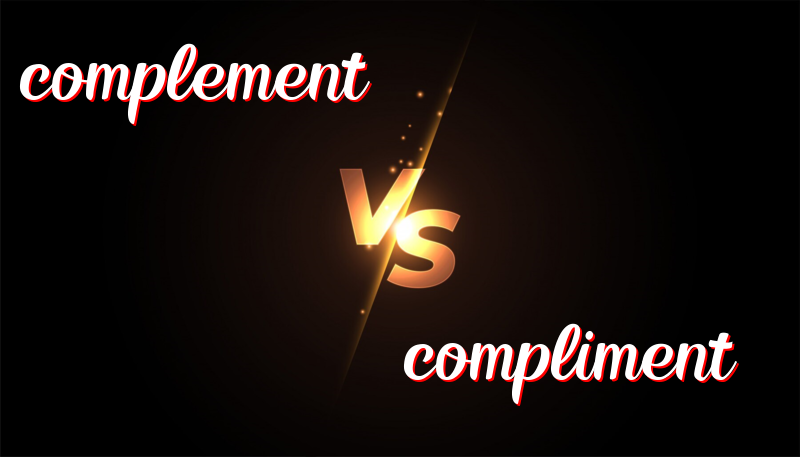Understanding the Distinct Meanings and Uses of Complement and Compliment
Complement vs. Compliment: What’s the Difference?
Even though “complement” and “compliment” sound the same, they mean different things. Let’s see what each word means, a bit about their history, how to use them, and a trick to remember the difference.
History
The word “complement” comes from a Latin word meaning “to complete.” It’s often used to show that something goes well with something else. “Compliment,” on the other hand, comes from another Latin word that means “to praise or say nice things.” This word is about saying something kind to someone.
How to Use Them
Complement
“Complement” is used when one thing goes well with another thing. It makes it better or completes it.
- The red shoes complement her dress.
- Milk complements cookies perfectly.
- His skills complement hers; they make a great team.
- This sauce complements the steak nicely.
- Green tea complements a healthy diet.
Compliment
“Compliment” is used when you say something nice to someone. It is a kind word or praise.
- She gave me a compliment on my haircut.
- His teacher complimented him on his hard work.
- The chef received compliments for the delicious meal.
- I paid her a compliment about her lovely singing.
- He often compliments others to make them feel good.
Trick to Remember the Difference
Remember, “complement” with an “e” is like “complete” because one thing completes or goes well with another. “Compliment” with an “i” refers to being “kind” by saying nice things.
Summary
In summary, use “complement” when talking about things that go well together. Use “compliment” when you praise someone. They might sound the same, but keeping in mind what they refer to can help you use them correctly!

Leave a Reply
You must be logged in to post a comment.